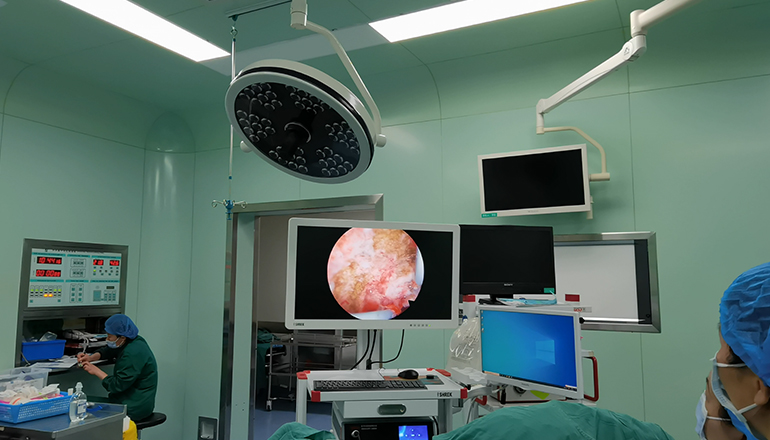- Shanghai, China
- [email protected]
- +86-21-58189111
Hysteroscopy surgery is a minimally invasive surgical procedure that offers several advantages over traditional open surgery. Here are some of the advantages of hysteroscopy surgery:
Minimal scarring: Hysteroscopy surgery is performed through the vagina and cervix, which means there are no external incisions or scars. This can reduce the risk of infection, speed up healing time, and result in less visible scarring.
Reduced pain: Hysteroscopy surgery is less invasive than traditional surgery, which means it can result in less pain and discomfort. Patients typically experience less pain after the procedure and require less pain medication.
Shorter recovery time: Hysteroscopy surgery is typically performed on an outpatient basis, which means patients can go home the same day. The recovery time is shorter compared to traditional surgery, and most patients can return to their normal activities within a few days.

Lower risk of complications: Hysteroscopy surgery is a safe and effective procedure with a low risk of complications. Because the surgery is minimally invasive, the risk of infection, bleeding, and other complications is reduced.
Improved diagnostic accuracy: Hysteroscopy surgery allows the surgeon to visualize the uterine cavity and diagnose various gynecological conditions with greater accuracy. This means that patients can receive more precise and effective treatment.
Enhanced treatment options: Hysteroscopy surgery allows the surgeon to remove or treat abnormal tissue or growths in the uterus, including polyps, fibroids, adhesions, and septums. This means that patients can receive more effective treatment for a variety of gynecological conditions.
Improved fertility outcomes: Hysteroscopy surgery can improve fertility outcomes in women with certain gynecological conditions, including uterine septum, adhesions, and fibroids. The removal of these conditions can increase the chances of a successful pregnancy.
In summary, hysteroscopy surgery offers several advantages over traditional open surgery, including minimal scarring, reduced pain, shorter recovery time, lower risk of complications, improved diagnostic accuracy, enhanced treatment options, and improved fertility outcomes. If you have a gynecological condition that requires surgery, talk to your doctor about whether hysteroscopy surgery may be an option for you.
Leave a Comments